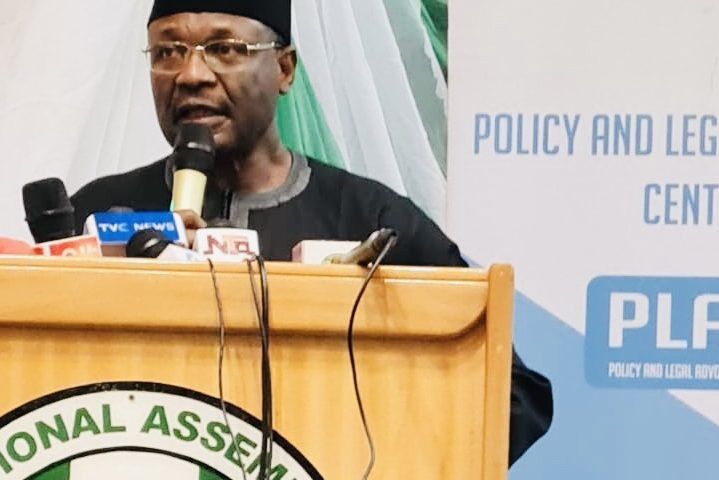The Independent National Electoral Commission (INEC) is looking forward to the day when highly placed sponsors of thuggery and high-profile figures that seek to benefit from violations of the law are arrested and prosecuted, the Commission’s Chairman, Prof. Mahmood Yakubu, has said.
Speaking at the public hearing on the Bill for an Act to establish the National Electoral Offences Commission and Related Matters, organised by the House of Representatives Committee on Electoral Matters in Abuja on 23rd August 2022, Prof Yakubu said INEC would also like to see more successful prosecution of offenders, not just ballot box snatchers, falsifiers of election results and vote buyers at polling units. To him, the proposed Commission would facilitate the attainment of such an objective.
Although he regretted that the Commission had found the responsibility of prosecuting electoral offenders under the Electoral Act very challenging due to what he described as “obvious constraints”, Prof Yakubu, however, insisted that the reform of the electoral process would not be complete without effective sanctions on violators of the law.
He explained: “For instance, since the 2015 General Election, 125 cases of electoral offences were filed in various courts out of which only 60 convictions have been secured so far, including the most recent one in Akwa Ibom State.
“INEC is an electoral commission with extensive responsibilities, which include the registration and regulation of political parties, the monitoring of party and campaign finance, their primaries, congresses, meetings and conventions; nationwide Continuous Voter Registration (CVR) and the maintenance of the national register of voters; creation of polling units; delimitation of electoral constituencies; voter education and publicity; management of electoral logistics; recruitment, training and deployment of election duty officials.
“Other responsibilities include the conduct of numerous off-cycle and bye-elections; innovations to promote inclusivity and electoral integrity; election security in consultation with the security agencies; strategic engagement with stakeholders; formulation of regulations, guidelines and manuals for the conduct of elections and electoral activities to give clarity to the provisions of the Constitution and Electoral Act; and maintenance of extensive physical assets (offices, residential accommodation and other facilities) nationwide. In many jurisdictions, some of these responsibilities are carried out by distinct and autonomous agencies.”
According to him, in addition to these responsibilities, the Commission was still required to prosecute electoral offenders. But he stated that the Commission’s incapacity to arrest offenders or conduct investigations there were essential for the successful prosecution of the high-profile offenders, led to the suggestion that the Commission should be unbundled to allow for the assignment of some of its responsibilities to other agencies as recommended by the Uwais and Nnamani Committees.
For those who believe that there was no need for the expansion of the federal bureaucracy by the establishment of a new Commission, the INEC Chairman argued that the National Electoral Offences Commission should be an exception. He said: “while there are other security agencies that deal with economic and financial crimes, I am yet to hear anyone who, in good conscience, thinks that it is unnecessary to have established the anti-corruption agencies.”
Prof. Yakubu said the Commission’s team had studied the 46 Clauses of the Bill and made 16 comments. He drew attention to Clauses 33(1) and 44. On the former, he said the conferment of jurisdiction on the Federal, State and FCT High Courts to try offenders under the Bill would put further pressure on the already over-burdened courts. Therefore, he proposed that the Electoral offences Tribunal be established with exclusive jurisdiction to try electoral offenders.
On the latter, which empowers the Attorney-General of the Federation to make rules or regulations for the Commission, Prof Yakubu reasoned that conferring additional power on any other body may cause friction with the proposed Commission, which “should be independent in the discharge of its functions even if doing so requires a consequential amendment to other laws of the Federation to empower the Commission and guarantee its independence.”
(By Nathaniel Gana – inecnews.com)




